Experienced poultry vet, David Parsons, MRCVS, explains some of the health-related consequences of prolonged confinement, and how to deal with them

Well here’s hoping that this will be the last mention that I give to Avian Influenza for a few months. The last few months have been quite unique. A salutary reminder that real disease, the sort that we cannot control, can occur with devastating consequences.
Bad enough that chickens die but up to now, Avian Influenza had not affected fancy fowl and backyard poultry. This time it did and the first signs that those affected saw, was a sudden increase in the number of dead birds over a day or two.
The last two outbreaks occurred in backyard poultry near Thornton, Wyre, Lancashire on May 4th and 6th.The first was a mixed age flock of about 30 chicken whist the second was apparently a flock of 9 birds, mainly chickens with 3 ducks.
With the Avian Influenza Protection Zone due to be lifted on May 15th, this could not have occurred at a worse time. It will be a few more months before reports on how and why these outbreaks occurred. My understanding is that this very nasty strain of H5N8 Avian Influenza was introduced to the UK by migratory waterfowl. Wigeons seem to be being blamed at present but many other species of bird have been affected and infected. Ideally, when these birds migrate back they would take the virus with them and our problem should go away or at least be reduced.
You may be aware that Defra have been very keen to examine dead wild birds to determine how wide spread the virus was. The good news is that for the last 8 weeks (calendar weeks 13 to 19), no virus has been found in wild birds. Prior to this time, virus was being found regularly throughout England and Wales in many different bird species but including wigeon, swans, raptors and gulls.
هذه القصة مأخوذة من طبعة July - August 2017 من Practical Poultry.
ابدأ النسخة التجريبية المجانية من Magzter GOLD لمدة 7 أيام للوصول إلى آلاف القصص المتميزة المنسقة وأكثر من 9,000 مجلة وصحيفة.
بالفعل مشترك ? تسجيل الدخول
هذه القصة مأخوذة من طبعة July - August 2017 من Practical Poultry.
ابدأ النسخة التجريبية المجانية من Magzter GOLD لمدة 7 أيام للوصول إلى آلاف القصص المتميزة المنسقة وأكثر من 9,000 مجلة وصحيفة.
بالفعل مشترك? تسجيل الدخول
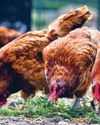
Growing food for Chickens
Mary Larham explores some crops to grow on your holding…
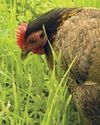
Poultry in the garden – the truth!
Jo-Jane Buxton shares her experiences
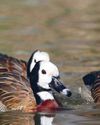
The British Waterfowl Association
Which came first, the goose or the egg?
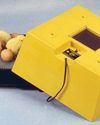
WHY FIT A FAN IN AN INCUBATOR?
Brinsea Products, the Incubation Specialists explain the difference between still air and forced draught
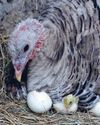
Incubating turkey eggs
Janice Houghton-Wallace looks at broody turkeys and artificial incubation

Chicken nesting box herbs
Diana Clauss owns The Blue Feather Farm, in St Cloud, Florida, home to chickens, ducks, goats, and Anatolian Shepherd dogs.
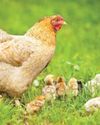
Incubate in January?
Jessica Wombwell says plan the breeding
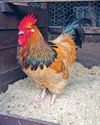
Andy's DIARY
Andy emphases the importance of keeping out damp and wet but allowing ventilation even in cold weather
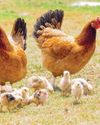
Feeding for Breeding
It may be winter, but as Joanna Palmer, nutritionist for Smallholder Range explains, now’s the time to get your flock in tiptop shape and plan ahead for a successful breeding season next spring.

A chick named Cuckoo raised by a duck!
Chris Hammacott and her husband live on a small croft in the Outer Hebrides, they keep a ‘no kill’ flock or rare and rescue sheep which they use to spin and weave rugs. They also share the 8 acres with hens, ducks, cats and 9 rescue pugs.